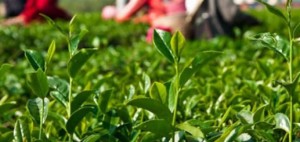Fairtrade sees support from UK consumers
 Volumes of Fairtrade tea, coffee, cocoa and bananas all grew in the UK in 2015 as consumers showed support for Fairtrade, according to the organisation, and these increased volumes will, it said, lead to greater financial premiums to Fairtrade farmers and workers in Africa, Asia, Latin America and Caribbean.
Volumes of Fairtrade tea, coffee, cocoa and bananas all grew in the UK in 2015 as consumers showed support for Fairtrade, according to the organisation, and these increased volumes will, it said, lead to greater financial premiums to Fairtrade farmers and workers in Africa, Asia, Latin America and Caribbean.
Fairtrade reported positive volume growth in four out of the five main Fairtrade food categories – coffee, tea, bananas and cocoa – and said that this sent a strong signal that shoppers and businesses are still standing up for Fairtrade, despite the tough grocery market.
“These figures show that British shoppers remain committed to Fairtrade, despite the turbulence in the grocery market,” said CEO of the Fairtrade Foundation Michael Gidney. “That’s good news for those businesses offering Fairtrade products. “We’re delighted to see increases in most of the categories for which Fairtrade is best known – this means more producers are getting a better deal for the food they grow for us.”
Commodities seeing strong volume growth were as follows:
- Coffee: 12%
- Tea: 3%
- Bananas: 5%
- Cocoa products: 6%
In real terms, the organisation said that the growth in volumes means that in 2015, the UK’s appetite for Fairtrade meant:
- More than 88 million more Fairtrade bananas were eaten, compared to 2014.
- The nation’s love affair with Fairtrade coffee showed no signs of abating, with an estimated 255 million more cups drunk in 2015 compared to 2014
- An additional 184 million cups of Fairtrade tea were brewed n 2015, compared to 2014.
However, not all Fairtrade products fared as well in 2015. In particular, changes in EU market regulations on sugar had created a collapse in sales of cane sugar, said the Foundation, as it had warned in its 2015 report Sugar Crash. Volumes of Fairtrade sugar declined by 36% in 2015, compared to 2014, spelling real challenges for the many thousands of small-scale cane growers dependent on cane exports to the EU for their livelihood.
The decline in the price of sugar in Europe has led to a shift away from cane towards domestic, subsidised beet sugar, delivering what Fairdtrade described as an effective triple whammy of reducing cane farmers’ livelihoods, reduced impacts for Fairtrade farming communities and much more cheaply available sugar at a time of national concern over obesity. Meanwhile sales of Fairtrade fresh and dried fruit and nuts also saw decline in 2015, as did Fairtrade cotton once again.
The Fairtrade Foundation’s initial estimates of the overall retail value of the UK Fairtrade market show a slight decline to around £1.6 billion in 2015, compared to £1.7 billion in 2014. However, if the collapse in the price and market for cane sugar is removed from the equation, overall Fairtrade sales grew by an average 4% in volume, whilst the retail value remained steady with around 1% growth.
“Sales in many commodities remain strong for Fairtrade, yet the irony of the EU flooding the market with cheap sugar at a time of increased concern over obesity is surely lost on no-one, with the added risk of pushing 200,000 farmers in developing countries back into poverty,” said Gidney.
For 2016, the Fairtrade Foundation said it remains cautiously optimistic, with recent announcements by a range of businesses to extending their commitments to buying on Fairtrade terms.

































